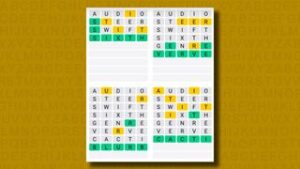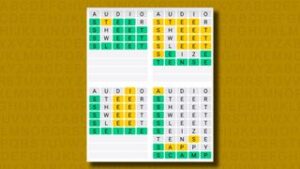/cdn.vox-cdn.com/uploads/chorus_asset/file/25784229/247333_EOY_Package_Check_In_CVirginia_SOCIAL_MEDIA.jpg)
If you had to pick a social network winner, it’s probably Threads. Two years ago, after Elon Musk acquired Twitter and announced his intention to ruin it forever, Meta CEO Mark Zuckerberg saw an opportunity to build a text-first social network. Now, barely 18 months after its launch, Threads has more than 300 million users and has been adding a million more every day.
But Threads isn’t Twitter, and it’s never going to be. Twitter was never the biggest or most successful social network — far from it — but Twitter was at the absolute epicenter of culture for years. It was where politicians went to talk to their constituents and emergency services went to tell people what was happening. It was where newsmakers dropped their scoops first. It was, by a mile, the place you were most likely to have your message actually read — or even replied to! — by an A-list celebrity or your favorite brand. It was a bad business and a frequently badly run company, but Twitter was the most right now place on the internet.
Threads will never be that. Zuckerberg and Instagram / Threads boss Adam Mosseri have made clear that they’re not interested in turning Threads into the kind of lively, chaotic, real-time voice of culture that Twitter was at its best. They’re building something more creator-friendly, more engagement-driven, more brand-safe. More like Facebook. (All those two-day-old posts you see are a feature, not a bug.) It’ll probably be a hell of a business and a terrible place to hang out.
Bluesky, on the other hand, is lively, fast, full of good ideas, and mostly shows you posts you want to see and not posts that the algorithm demands you look at. Journalists are flocking to Bluesky because it doesn’t penalize links, and news junkies are coming, too. But Bluesky is tiny, which is a problem: it doesn’t yet have the user base to be truly culturally central, and its team is so small it might have trouble keeping up with new features and content moderation. (The same is true of Mastodon, which has lots of good ideas but none of the polish or buzz to pull them off.)
It seems increasingly clear that there simply won’t be a next Twitter. Or, put another way, there might be lots of next Twitters. The social network of the future will be spread across countless platforms and protocols, from group chats to Discords to Meta apps. The true legacy of the end of Twitter may be the end of the social monoculture, the idea that we even could all bring our whole selves to a single place and expect it to work out. We’ll replace it not with Better Twitter or even New Same Twitter but in lots of apps around the internet. And that’s probably for the best.
There simply won’t be a next Twitter — or there might be lots of next Twitters
Apps like Threads and Bluesky are useful platforms for text-first broadcasts, a way for creators and politicians to broadcast their message to millions at a time. But for everything else, we’ve begun to simply move on from social networks. Jack Dorsey may have once called Twitter “public messaging,” but group chats in WhatsApp or iMessage are better places to talk to friends. Communities that might have once gathered around hashtags are now hanging out in Discords and subreddits. Even YouTube is building community tools that work better than hanging out in MrBeast’s X replies. The best way to use the internet is simply to spend time where your people are — and there are more possibilities than ever.
The state of things makes online life kind of a mess. Yes, you should be on Threads; you do definitely need a Bluesky account; there are some smart people talking tech on Mastodon. You’re in a bunch of Discords, following some WhatsApp channels, reading a million newsletters, and flitting between group chats just to keep up on the stuff you care about. It’s exhausting and confusing, and it’s not going to get better anytime soon.
A shift in social networks is likely to happen slowly, then all at once. We’ve now had so many so-called “mass migrations away from X” that it’s pretty clear none of them are mass at all. Instead, people will move slowly, as behaviors and communities change. And it’s pretty clear they won’t all move to the same place. Long term, I’m still bullish on the fediverse, the idea that all these social apps could be united on a single infrastructure that lets you move freely between platforms. Mastodon, Threads, and Bluesky all believe in decentralization, albeit in slightly different ways. They’ll figure it out, but it’ll take a while.
People will move slowly, as behaviors and communities change
In the meantime, we’re stuck without that universal gathering spot on the internet. That’ll cost us two things: that occasional magical feeling that the whole world was watching the same thing as you and all talking about it together, and the notion of a single default place you could go to find out “what was happening,” whatever that means to you. But on the flip side, we’re already seeing new kinds of communities form, new tools to aid those communities, and entirely new ways of getting together online. We might all miss a little more stuff, now that it’s happening in more places. But that’s probably okay.
The cliche in tech is that everything is always alternately bundling and unbundling. After a generation of tightly bundling our social networking experience, we’re now deep in an unbundling phase. It’s messy, and it’ll get messier. Just like real life.






